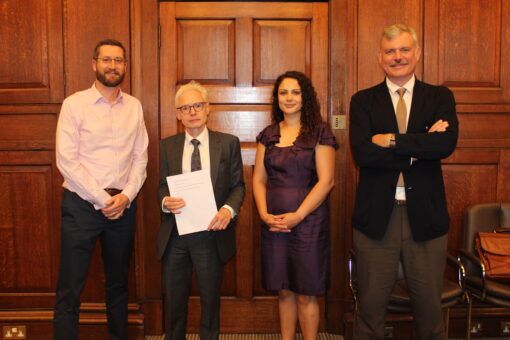The modules are run by Professor Jon Davis and Dr Michelle Clement and both were full of praise for Patrick’s efforts.
Professor Davis said: “Some in the Conservative Party felt that Cameron wasn’t ‘one of them’ but at the same time, they knew that he had power and he was still prime minister. There was this extreme juxtaposition which Patrick captured so well.”
Patrick, a former corporate communications specialist, was inspired to take the MA by a friend and said he chose the Brexit referendum for his essay in an effort to help him better understand the process and the circumstances that had led to the outcome.
Patrick said; “This was such a wonderful essay prize. I really enjoyed meeting Simon Case. I realised the referendum was such an enormous event in British politics that I had lived through and didn’t understand, and I felt that I needed to sort it out and work through what I really thought about it.”
Before embarking on the essay, Patrick thought former prime minister Cameron’s main consideration in pursuing the referendum was political. But by the end, he concedes that Cameron was using the referendum to grapple with difficult European policy dilemmas as well, particularly the impact of the Euro Crisis. It was Cameron’s appetite for risk, Patrick concludes, that led him to believe both the political and policy dilemmas could both be resolved by holding a referendum.
